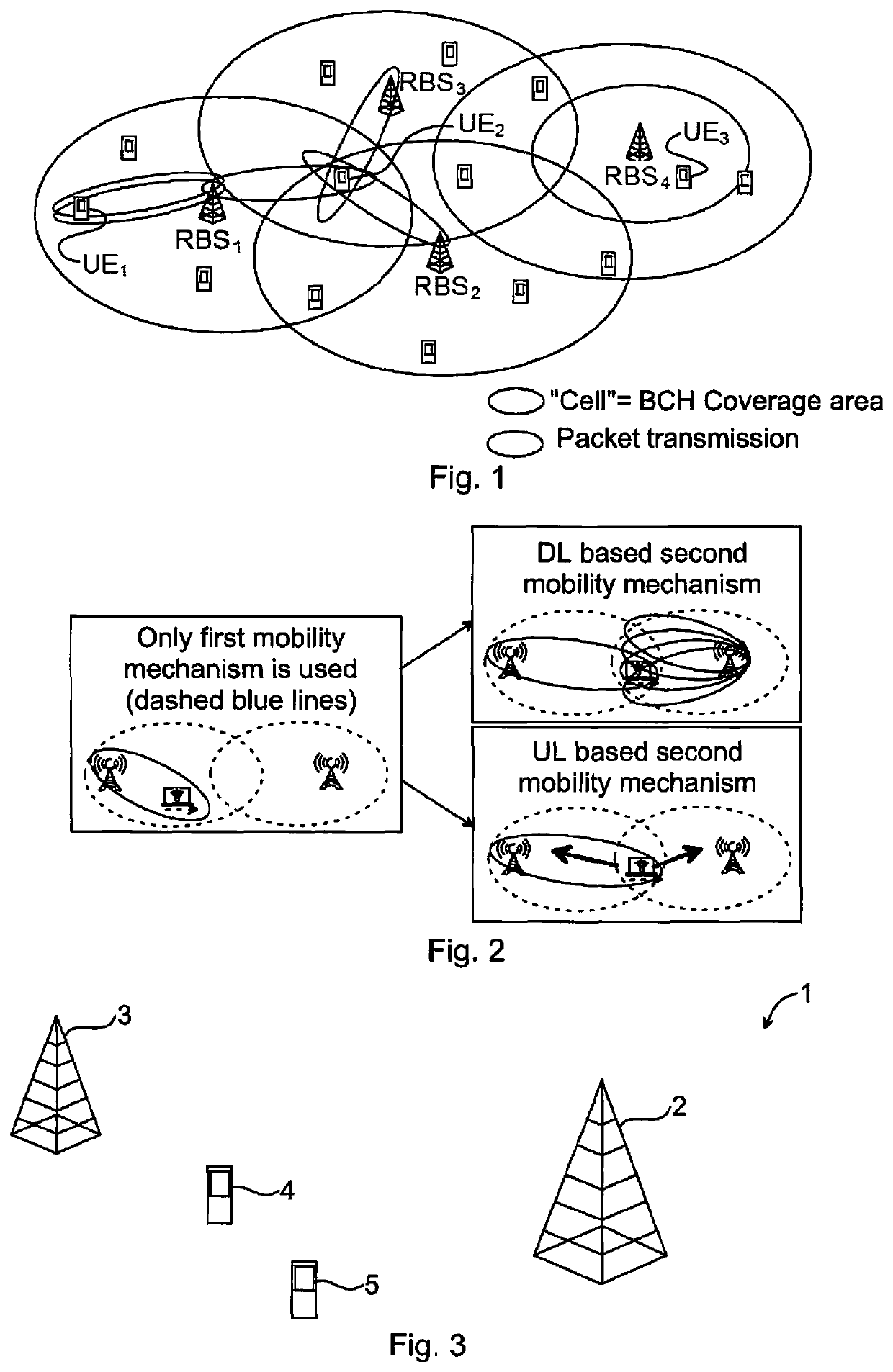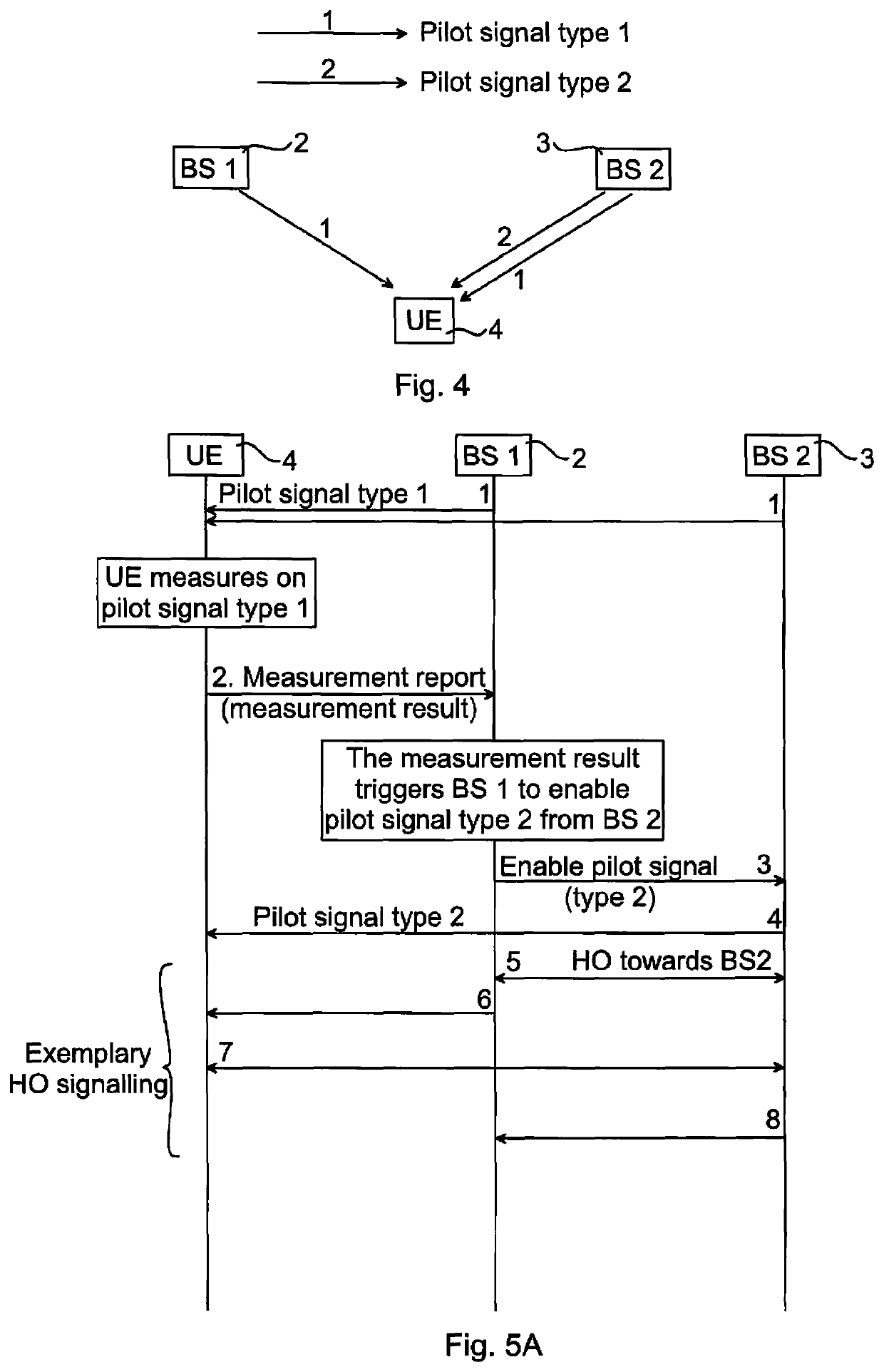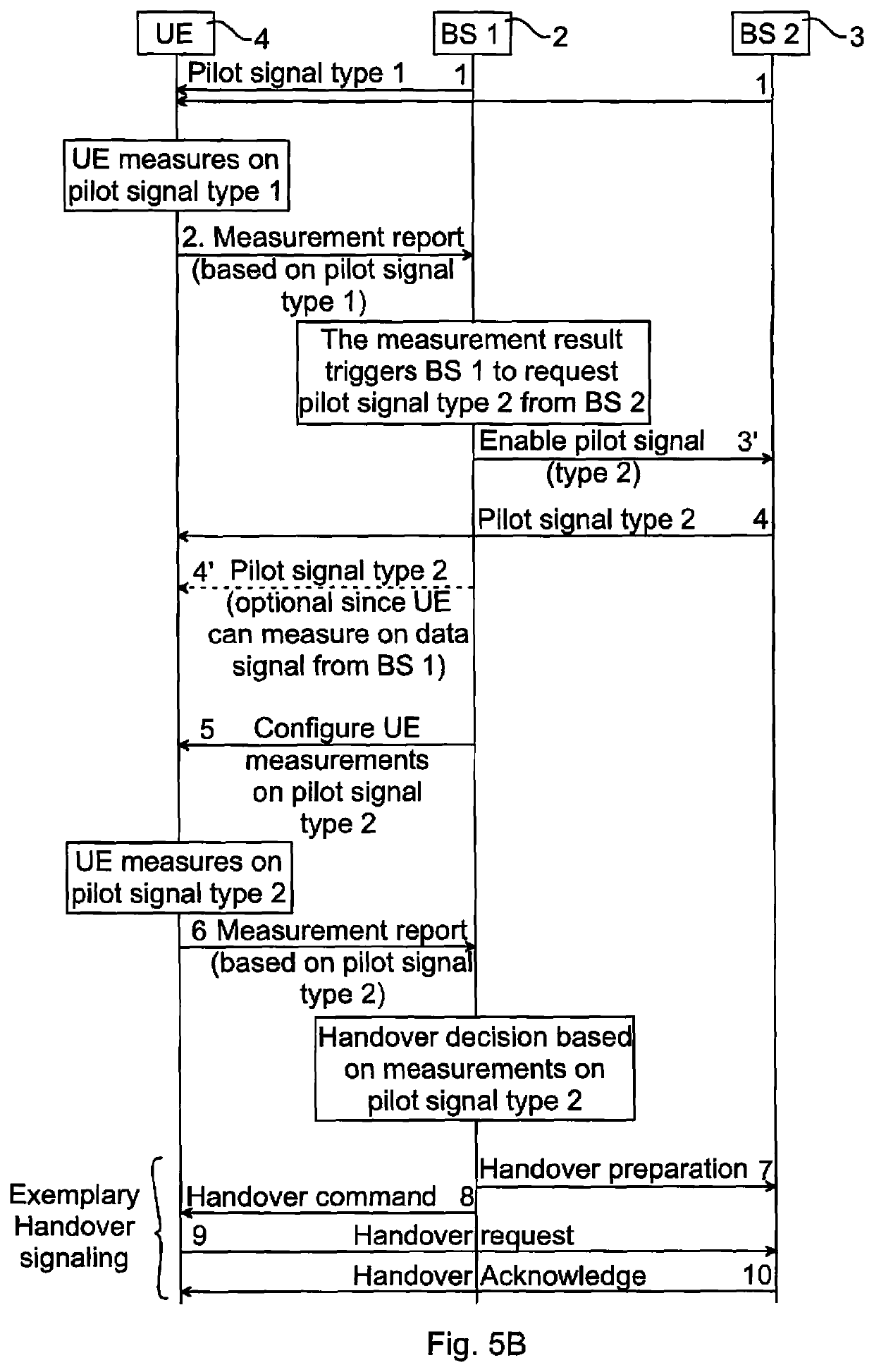Method in a base station of a communication system for making a handover decision, base station, computer programs, and computer program products
a communication system and base station technology, applied in the field of handover, can solve problems such as wasting energy, affecting the handover process, and the inability to motivate the coupling between system information and data coverage, and achieve the effect of improving handover
- Summary
- Abstract
- Description
- Claims
- Application Information
AI Technical Summary
Benefits of technology
Problems solved by technology
Method used
Image
Examples
first embodiment
[0041]FIG. 4 illustrates schematically pilot signaling of the invention. The first base station 2 is the base station currently serving the user equipment 4, and the second base station 3 is a possible candidate or target base station. The first base station 2 and the second base station 3 both transmit a first type of pilot signal (indicated in the figure by arrows denoted 1) used for mobility purposes. The user equipment 4 receives these pilot signals, makes measurements on them and reports the measurements to the first base station 2. Based on the downlink pilot signal measurements performed by the user equipment 4 and reported e.g. to the first base station 2, a second type of pilot signal is transmitted by the second base station 3.
[0042]FIG. 5A is a sequence diagram illustrating exemplary signaling between nodes of the communication system 1 for the embodiment of FIG. 4. This embodiment can be seen as a downlink based second mobility mechanism (refer also to FIG. 2).
[0043]The ...
second embodiment
[0046]FIG. 6 illustrates schematically pilot signaling of the invention. The first base station 2 is again the base station currently serving the user equipment 4, and the second base station 3 is the target base station. The first base station 2 and the second base station 3 both transmit a first type of pilot signal (indicated in the figure by arrows denoted 1) used for mobility purposes. The user equipment 4 receives these pilot signals and makes measurements on them and reports the measurements to the first base station 2. Based on this measurement, the first base station 2 requests a second type of pilot signal from the user equipment 4.
[0047]FIG. 7A is a sequence diagram illustrating exemplary signaling between nodes of a communication system for the embodiment of FIG. 6. This embodiment can be seen as an uplink based second mobility mechanism (refer also to FIG. 2).
[0048]The first base station 2 and the second base station 3 transmit the first type of pilot signal (arrows den...
PUM
 Login to View More
Login to View More Abstract
Description
Claims
Application Information
 Login to View More
Login to View More - R&D
- Intellectual Property
- Life Sciences
- Materials
- Tech Scout
- Unparalleled Data Quality
- Higher Quality Content
- 60% Fewer Hallucinations
Browse by: Latest US Patents, China's latest patents, Technical Efficacy Thesaurus, Application Domain, Technology Topic, Popular Technical Reports.
© 2025 PatSnap. All rights reserved.Legal|Privacy policy|Modern Slavery Act Transparency Statement|Sitemap|About US| Contact US: help@patsnap.com



